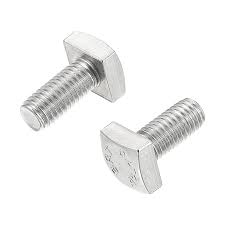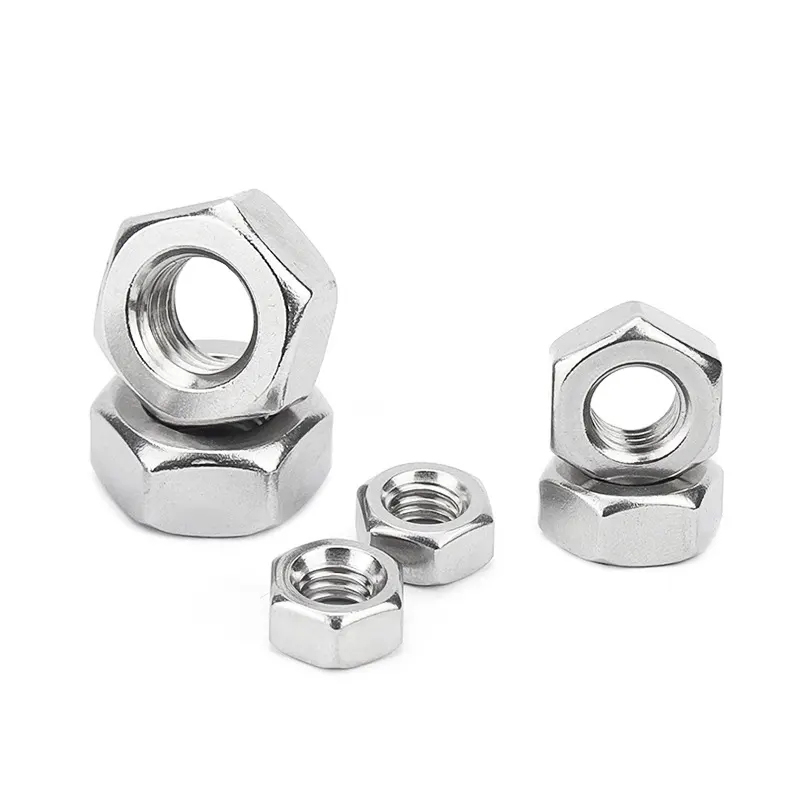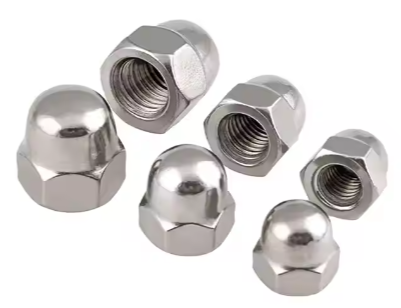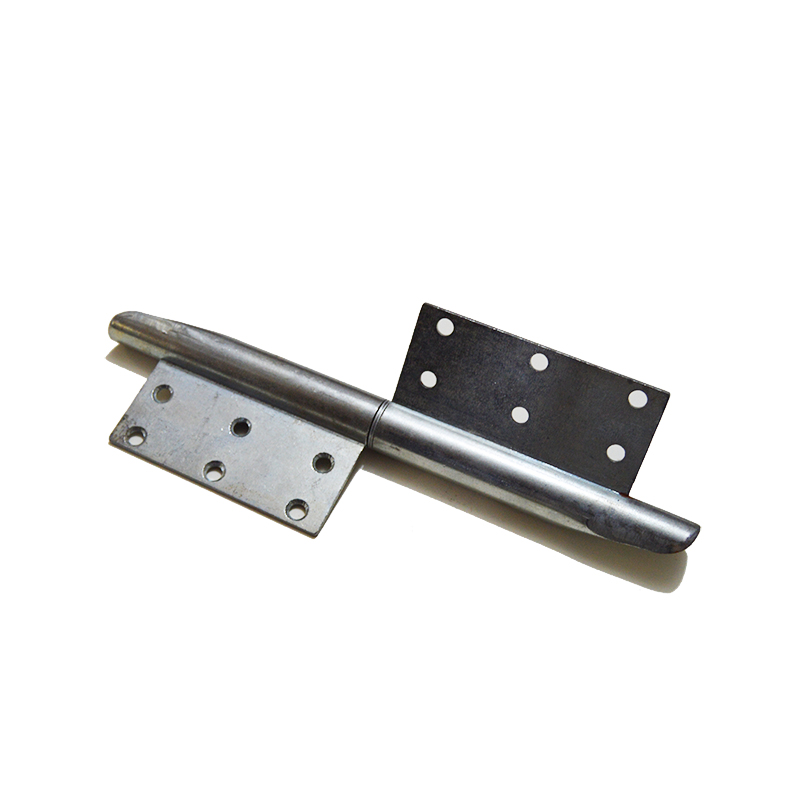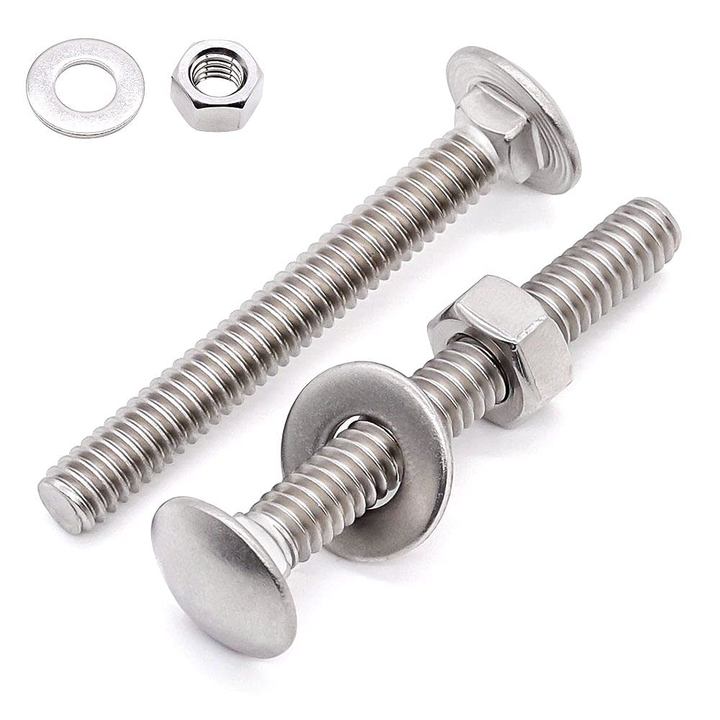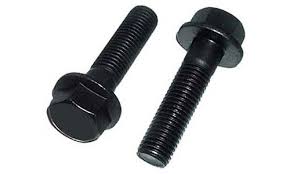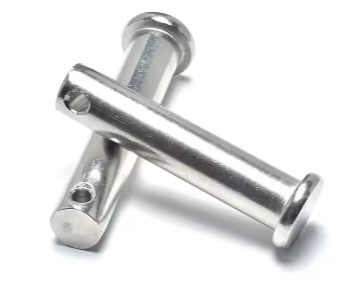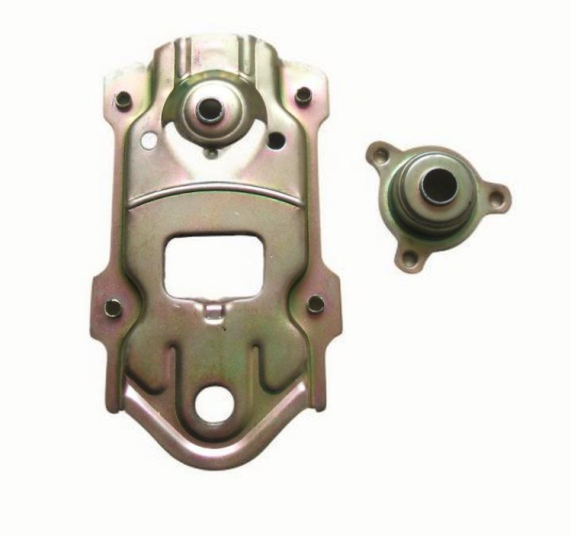

This guide provides a comprehensive overview of stainless steel coach bolts, covering their types, applications, advantages, and selection criteria. Learn how to choose the perfect stainless steel coach bolts for your project, ensuring strength, durability, and longevity.
Stainless steel coach bolts are high-strength fasteners characterized by a slightly rounded head and a square neck. This design prevents the bolt from turning during tightening, making them ideal for applications where a secure and reliable connection is crucial. Unlike standard bolts, the square neck offers enhanced torque resistance, making them particularly useful in high-vibration or stress environments. They are commonly manufactured from various grades of stainless steel, offering excellent corrosion resistance and durability. The choice of grade will depend heavily on the specific application and the level of corrosion protection needed.
Several types of stainless steel coach bolts exist, differing primarily in their material grade and finish. Common grades include 304 (austenitic), 316 (austenitic), and 410 (martensitic) stainless steel. Each offers a unique balance of corrosion resistance, strength, and cost. For instance, 316 stainless steel offers superior resistance to chloride corrosion, making it ideal for marine or coastal applications. Finish options often include polished, brushed, or mill finishes, each affecting the aesthetic appearance and potentially the corrosion resistance.
Selecting the right stainless steel grade is vital for ensuring the longevity and performance of your stainless steel coach bolts. Here's a comparison of common grades:
| Grade | Corrosion Resistance | Strength | Applications |
|---|---|---|---|
| 304 | Good | Moderate | General purpose |
| 316 | Excellent (chloride resistance) | Moderate | Marine, coastal environments |
| 410 | Good (less than 304/316) | High | High-strength applications |
Note: These are general guidelines. Specific properties can vary depending on the manufacturer and precise alloy composition.
The superior strength and corrosion resistance of stainless steel coach bolts make them suitable for a wide range of applications, both indoors and outdoors. They are frequently used in:
Their square necks prevent rotation, ensuring a secure and reliable fastening in various demanding environments. The choice of grade will heavily influence the suitability for specific applications.
When selecting stainless steel coach bolts, consider the following factors:
Accurate calculations and careful consideration of these factors are essential to guarantee a successful and durable installation.
For high-quality stainless steel coach bolts, consider reputable suppliers with a proven track record. Suppliers such as Hebei Dewell Metal Products Co., LTD offer a wide selection of stainless steel fasteners, including various grades and sizes of coach bolts, ensuring you find the perfect fit for your project. Always verify the material certifications to ensure quality and compliance with relevant standards.
Remember to always consult relevant building codes and regulations when selecting and installing fasteners for your specific project.



